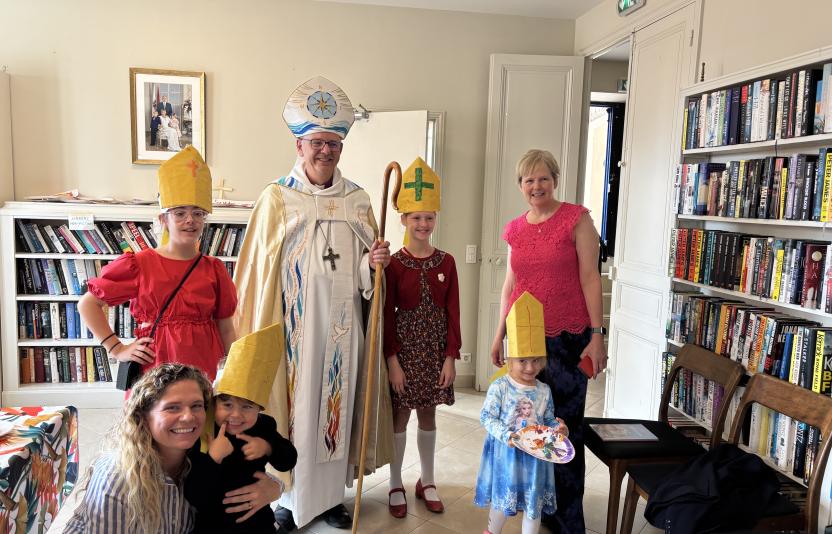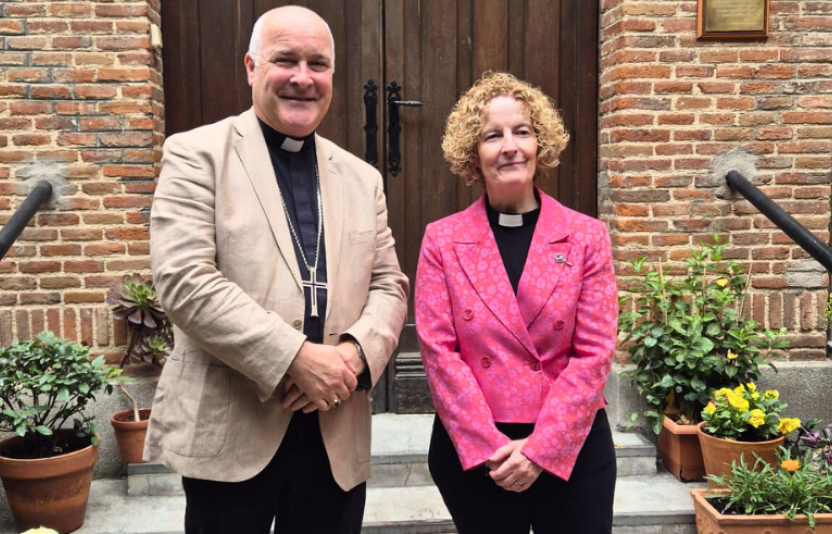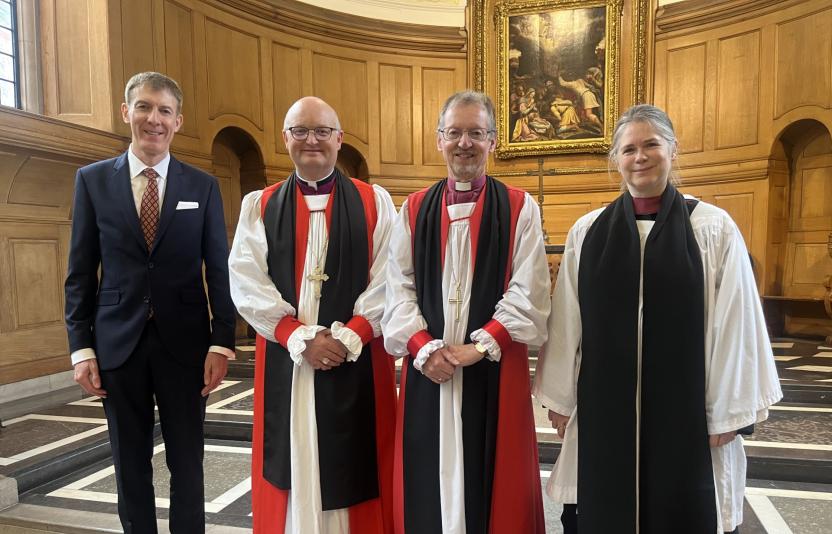What it was like to be a part of the MES Scheme in Brussels
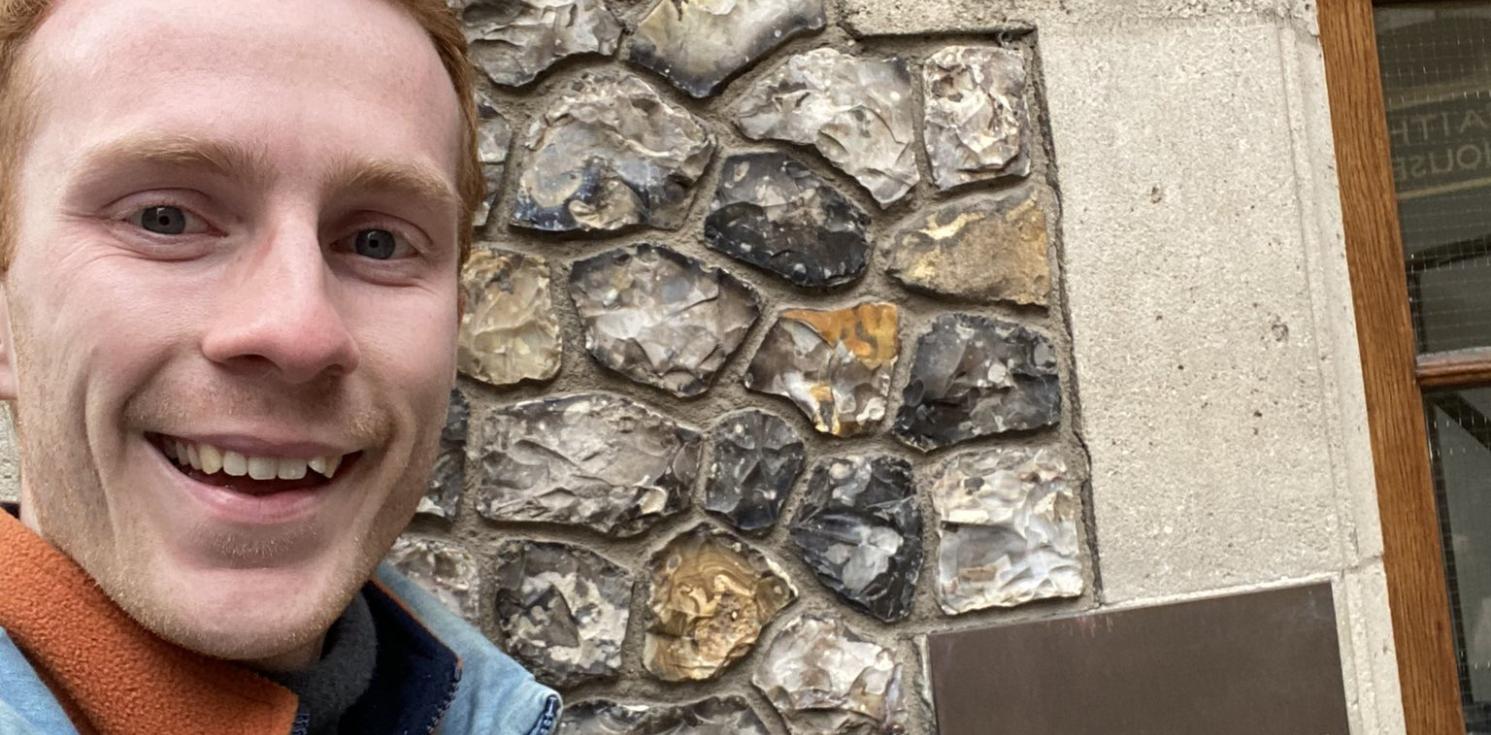
MES (Ministry Experience Scheme) is a year-long internship that's run in many Anglican dioceses. It's designed to give young people who are exploring their vocation and what God is calling them into an opportunity to experience ministry.
We talked to Guido Bowen, from East Sussex, about his MES year in Holy Trinity, Brussels.
Guido lived in Leeds until he was 16. After that, he moved with his family to Sussex, where he also came to faith. Originally part of the Roman Catholic Church, he discerned a calling to the Church of England.
It was through a conversation with a friend who had taken part in the scheme in Norfolk diocese that Guido decided to do some research. He found a map of where you could do MES in the Church of England on their website and noticed a little diamond hovering over Europe. “It was a winter's evening, early January 2022, on my laptop coming across MES in Europe when I decided to get in touch with the coordinator.” he explained.
After being asked why he chose to do his placement in Europe, he replied: "I understand vocation to be something that needs to be approached holistically in order for me to understand how God calls every aspect of myself."
“So to discover and explore that vocation, in Europe, very much made sense for me, because it meant that I could pull from all my experiences, be that professional, personal, or academic, and flesh that out in that context, where, in a sense, I am most truly who I am.” he added.
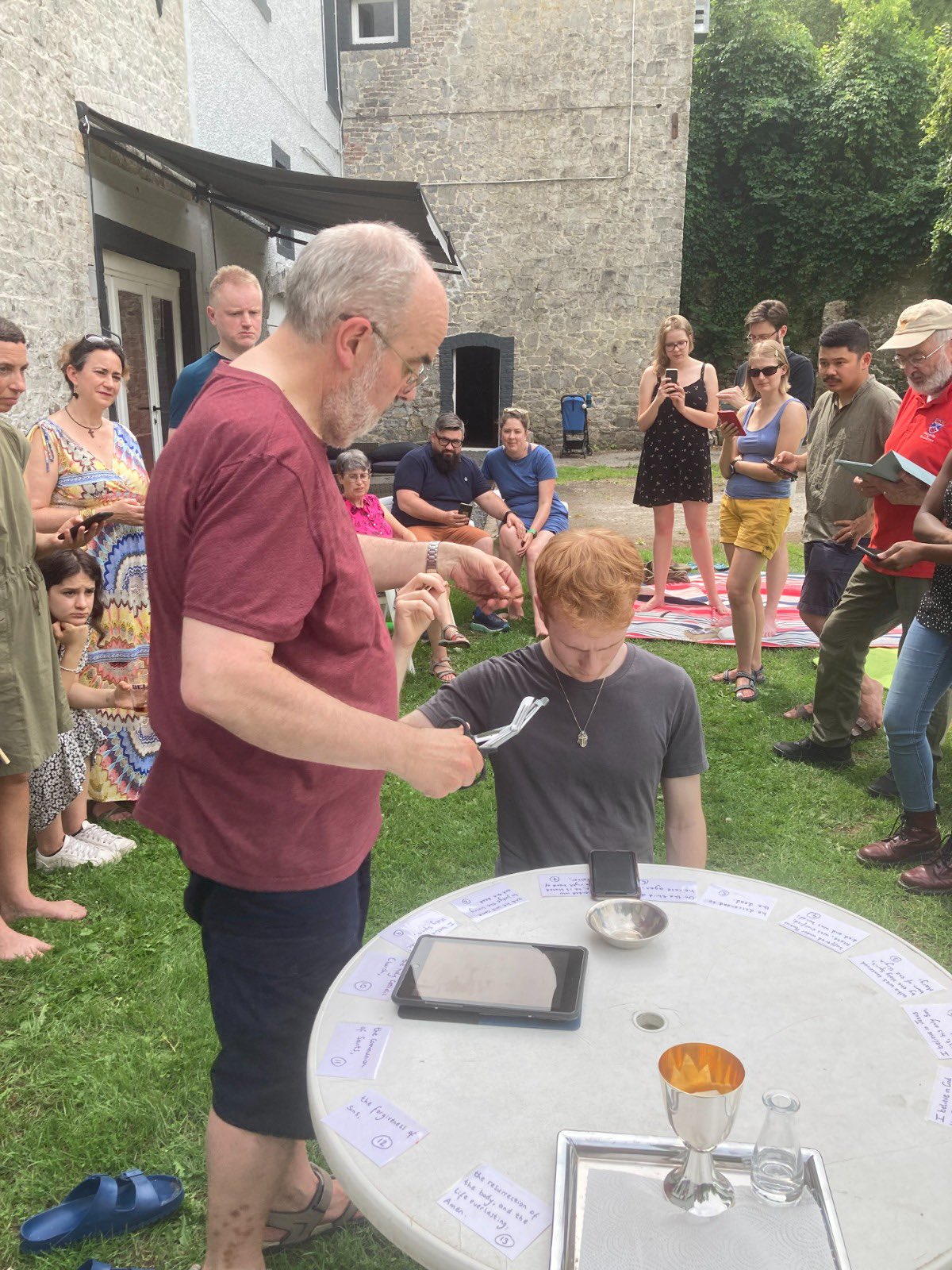
As he doesn’t speak French, initially he was concerned about whether language would be a barrier: "Most of my time was in English-speaking communities in Brussels. That said, it wasn't something that played on me very much. I wasn't worried about not being able to communicate with people. It wouldn't be a barrier for somebody who's not as confident with languages."
He pointed out that the Diocese of Europe is a unique case study. It is not a province of the Anglican Communion, but it is a diocese. It’s morphed and grown into its own entity that has a real sense of serving European rather than just expat communities.
“Understanding the ways in which that demographic change is playing out in ministry and mission is something that's important to take that to our diocese in England, where perhaps those demographic shifts have been slightly slower.” he added.
Another ‘important lesson’ that he learnt was that the Church of England in Europe is a small minority compared to the number of Christians in England who are part of the Church of England. He explained that: “it means is that there is a sense of our place is not being the established church, but it's being a church among many parts of the body.
“That in turn encourages ecumenical relationships and interdenominational relationships. Because we know that we cannot survive purely on our own. We have to build real connections with other churches if we are going to serve God's people in Europe.
He called it a ‘lesson in humility.’ A reminder that we should not rely purely on ourselves, but reach out to through mission and look at our partners, as we seek to serve our communities and congregations.
MES interns have a wide range of opportunities. They can design liturgy, plan worship services and lead them, intercede regularly and have pastoral encounters with people. Guido was also involved in missional aspects of the church like Holy Trinity's Community Kitchen. Interns have monthly educational supervision meetings during which they discuss theology that helps them discern how God is calling them. These meetings also give interns a chance to discuss how they are being impacted by what they are experiencing.
The Diocese in Europe MES scheme has a unique element: a pilgrimage to the Holy Land led by Clare Amos, Director of Lay Discipleship and Ministry Experience Scheme for the diocese.
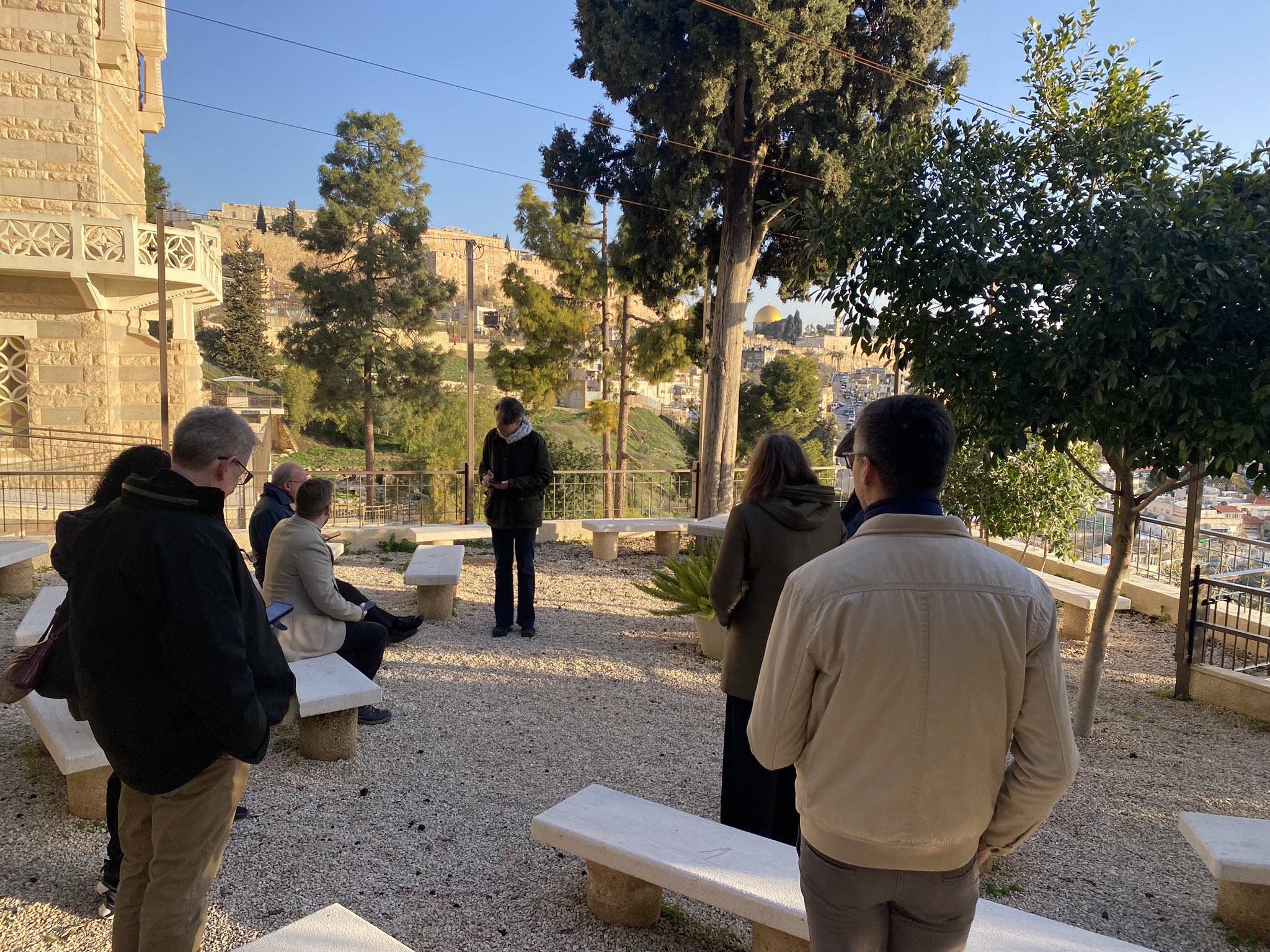
Guido was moved by the experience of standing on the shores of the Sea of Galilee. It was there, where the fishermen were when Jesus called them to come and follow him. "You see the lake stretching out before you," he said describing the sight, remarking on the serenity and tranquillity of the place.
It made Guido realise what the disciples were giving up when they chose to follow Jesus. They were giving up the beautiful reflection of the water, the mountains and hills surrounding - all in exchange for uncertainty and new territories.
He said, "Seeing this in person gave me a sense of the personal sacrifices and surrender to Christ that we are all called to as his disciples. We shouldn't rest in our status quo but be ready to leave even if we do so in sadness, trusting that God will lead us, be with us and continue bearing fruit in our lives.”
Guido said that being in a publicly recognised position within the church helped him discern how he's understood what God is calling him into by allowing him to hear the perspective of the wider church.
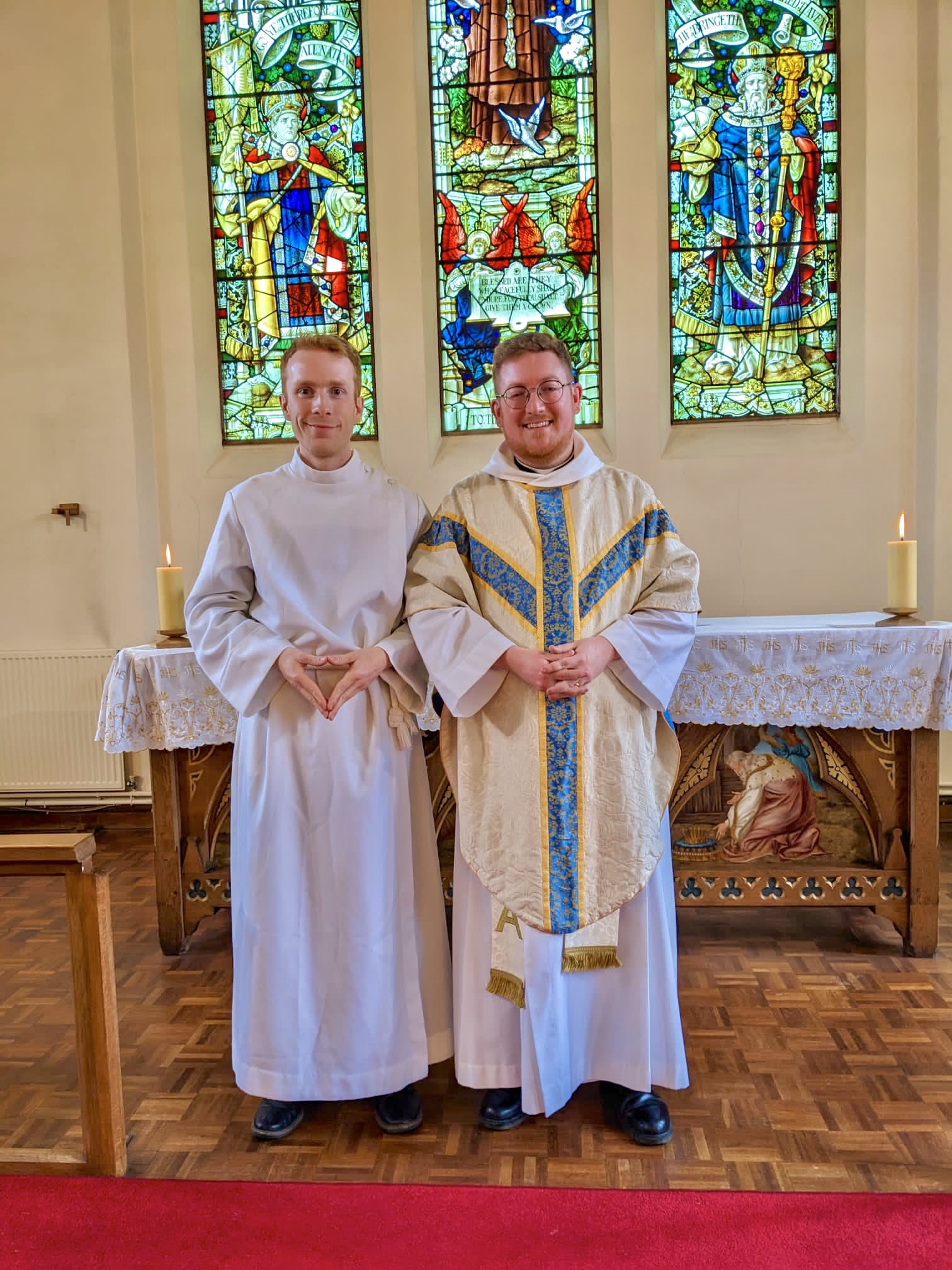
“People have pointed out that I sign a lot when I preach, so I incorporated it unknowingly into my preaching,” said Guido, who previously worked as a Learning Support Assistant and used Makaton sign language frequently. “But it was something people picked up on, and that's a real gift. So I leant into it and saw how that could be a way of engaging people.”
After his internship, Guido is ready to take the next step in his ministry. He told us: "You're putting yourself out there in terms of people are hearing and seeing the way that you are as a Christian. So, it can be quite exposing quite overwhelming at points. It's important to me to take time to process that and to see how that links with other aspects of myself." He plans on attending retreats and pilgrimages including stewarding a Youth pilgrimage to Walsingham before starting ordination process in his home diocese, Chichester.
Finally, Guido offered advice for others considering the MES year: "There is no expectation that doing the scheme is signing yourself off to become a priest. MES is for all sorts of vocations. It can be an entry point into youth or children's ministry, hospital or prison chaplaincy, and so much more."
"It's just giving you a space to be able to listen for God's calling and experience the ways in which he's calling you." he added.
